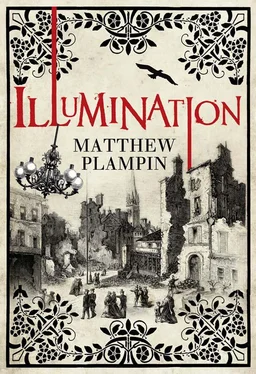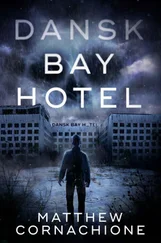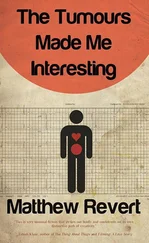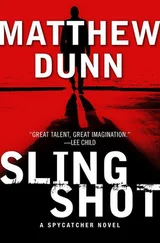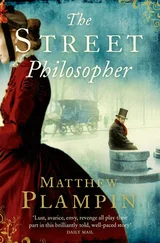Monsieur Besson’s small blue eyes went from Elizabeth to Clement. It was plain that he’d never heard the Pardy name before in his life. ‘ Enchanté, Madame ,’ he said. ‘ Monsieur .’
Inglis ushered them towards the boulevard. Clem attempted to help Monsieur Besson with his camera – a solid Dallmeyer Sliding Box that looked like it had seen a lot of service – but was politely refused. Taking care to speak clearly, he revealed that he’d dabbled in photography himself and mentioned his regard for the portraits of Nadar. The Frenchman made a noncommittal reply. Photographers tended to come on a scale and Clem perceived that Inglis’s man fell very much at the scientific end. This Monsieur Besson’s interest was in chemical formulas and the specifics of lighting rather than aesthetical or theoretical matters. Clem could appreciate this; it was his inclination as well.
They ended up in opposite corners of the cab, one facing his mother and the other his prospective patron. Elizabeth and Inglis began a lively dialogue, discussing tactics and probable outcomes with an assurance that belied their obvious lack of knowledge. Any further communication with the photographer was impossible. Clem watched his mother for a minute as she talked, so ardent and so engaged with it all – and suspicion snapped open inside him like a spring lock. Had there been some truth to Inglis’s accusations? Had Elizabeth been intending to stay from the beginning and deliberately allowed them to become shut in? At that moment it seemed horribly likely. This warranted a reaction – a barbed comment if nothing else. Clem shifted on the cab’s thin cushions; he had no aptitude whatsoever for that sort of thing. He took out a cigarette and opened the window.
The sandbagged Louvre passed to the right; and then they were on a bridge, cutting across the nose of the Ile de la Cité. Clem smoked nervously, glancing at the barges and dredgers moored along the stone channel of the Seine. When he looked around again Besson was sketching in a pad of squared technical paper. The cab turned left, rocking on its suspension; Besson paused in his work and Clem glimpsed of some kind of valve, drawn with extraordinary exactness. What this might have to do with photography he hadn’t the faintest idea.
They wound through the lanes of the Latin Quarter, skirted the deserted gardens of the Luxembourg Palace and rolled over a series of broad starburst intersections. The streets grew busier as they got closer to the cannon-fire; it was as if Paris was being tilted gently southwards, its inhabitants rattling down through the boulevards like ball bearings in a child’s wooden maze. The cab slowed, taking its place in a long queue. By the time they were in sight of the enceinte they were hardly moving at all, caught in a jam to rival anything on Ludgate Hill. Farm carts loaded with forage were failing to get into the city; tumbrels loaded with cartridges were failing to get out. National Guard were everywhere. They stood about the streets like striking workers, drinking cups of wine in their spotless uniforms. Amid the general restlessness and impatience some were making strident declarations of their desire to die for their country, beating their chests as they demanded to be sent into battle.
‘Look at these fellows,’ sneered Inglis, ‘bright and clean in all the bravery of just-served-out clothing.’
Leaning from his window, he hailed a group of militia and asked a question. They answered him with vehement energy; even Clem could tell that things were not going well for France.
Elizabeth held out her hand for the notebook. ‘Clement, if you please.’
‘What’s happening?’
‘It would seem that a French division attacked a column of Prussians, but then broke apart when their fire was returned,’ his mother told him. ‘They are now fighting simply to retain their original position.’
She began to write and was soon absorbed. The cannons picked up beyond the wall, eliciting an anxious murmur from the crowds outside and a whinny from the cab’s horse, yet she barely reacted. What have you done , Clem wanted to shout at her; what have you let us in for, merely to boost your damned career? Last night had been a marvellous adventure, one to cherish, but this – the artillery, the bawling militia, the hordes of rampaging Prussians – this was really getting to be too much. The carriage had grown intolerably hot and cramped. He noticed that he was trembling; disposing of his cigarette, he placed his palms firmly on his kneecaps and splayed his fingers as wide as they would go. This brought no steadiness.
Inglis sat back from the window. ‘Dear me,’ he chortled, ‘not a very promising start! This’ll put a crack in the Parisians’ rather exalted sense of themselves.’ He nodded at his photographer. ‘No offence, Monsieur Besson.’
Besson wasn’t listening. ‘Mr Inglis,’ he said in accented English, putting away his sketch, ‘I have a notion. I shall head up to the circular railway. I can get a good view from there – of Montrouge, of the plateau. A fine picture could be taken in this light.’
Spying Elizabeth’s industry, Inglis had dug out a pencil of his own and was scribbling in the corner of an old theatre programme. ‘Capital, capital,’ he said. ‘Just be sure that you’re at that church on the rue du Château within the hour, d’you hear? I know what you’re like, Besson, wandering off wherever your fancy takes you.’
Dislike flickered across the photographer’s face as he slid a case from the luggage rack. He said nothing.
Clem saw a chance for escape. ‘I’ll come along to assist you, Monsieur Besson. I’ve put up a few photography tents in my time. I – I could use the air, to be quite honest.’
Elizabeth made no comment; she turned a page, touching the tip of her pencil against her tongue.
Besson eyed him with a marked lack of enthusiasm, but couldn’t think of a reason to refuse. ‘Very well,’ he said.
The Paris circular railway ran along a steep-sided embankment a short distance from the city wall. Besson’s pace didn’t change as he went from the street to the slope; Clem, despite having only been given the doctor’s bag to carry, soon fell far behind. When he reached the top Besson had already assembled his tent poles and was shaking free the canvas cover. Clem panted across the train tracks towards him.
‘So there it is,’ he gasped, setting the doctor’s bag down next to the camera, ‘a deuced battle .’
They were up above the rooftops, perched on the very edge of Paris. Directly in front of them were the fortifications, heavy ramparts of earth and stone crowded with National Guard. Just outside the city gates lay a village, Montrouge Clem assumed, its lanes blocked by stationary carts. Beyond, perhaps a mile away, was the chain of forts on which the defence of the capital depended. He could see three of them, brownish mounds heaped upon the smooth farmland like shovelfuls of clay. Past this everything grew indistinct, enveloped in a haze of sunlight and vapour; but off to the west a low plateau was boiling with dust, threads of black smoke trailing from the village atop it. Around the buildings was the shifting grey-blue stain of a large body of men, moving at speed as they obeyed some unknown command. Rifles crackled; artillery hammered out a lopsided beat. It was easier to take than Clem had anticipated. The alarm he’d felt in the carriage was allayed, more or less; he even felt an odd invigoration. He lit a cigarette and watched.
Beside him, Besson was hard at work. The Frenchman’s suit rustled as he moved. It was made from some kind of fire-retardant material, with scorch-marks on the jacket cuffs and waistcoat – curious garb for a photographer.
Читать дальше
